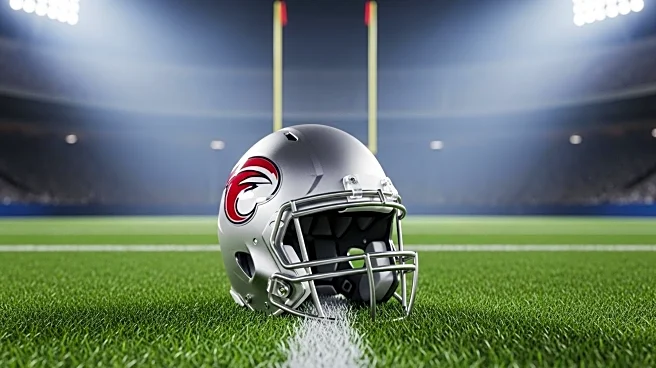What's Happening?
The Dallas Cowboys have traded star linebacker Micah Parsons to the Green Bay Packers. This move has sparked reactions across the NFC East, particularly from Philadelphia Eagles' left tackle Jordan Mailata, who expressed relief at not having to plan against Parsons anymore. Parsons, known for his impactful performances, has been a significant challenge for the Eagles, having recorded five sacks in seven games against them. Despite Parsons' departure, Mailata acknowledged the Cowboys' defense remains formidable, requiring continued respect and strategic planning.
Why It's Important?
The trade of Micah Parsons is significant for the NFC East, as it alters the competitive dynamics within the division. Parsons has been a key defensive player for the Cowboys, and his absence could affect their defensive strategy and performance. For teams like the Eagles, Washington D.C., and New York, Parsons' departure may ease their offensive planning against the Cowboys. However, the Cowboys' defense still poses a threat, necessitating adjustments from their rivals. This trade could influence playoff prospects and divisional standings, impacting team strategies and fan expectations.
What's Next?
The Cowboys will need to adjust their defensive lineup and strategies following Parsons' departure. The Packers, on the other hand, will integrate Parsons into their defensive scheme, potentially enhancing their pass rush capabilities. NFC East teams, including the Eagles, will reassess their game plans against the Cowboys, focusing on other defensive threats. The upcoming season will reveal how these changes affect team performances and standings. Stakeholders, including coaches and analysts, will closely monitor the impact of this trade on the Cowboys' and Packers' season outcomes.
Beyond the Headlines
This trade highlights the strategic decisions teams make to balance immediate performance with long-term success. The Cowboys' choice to trade Parsons may reflect broader goals of team restructuring or financial considerations. It also underscores the influence of player relationships and management decisions in shaping team dynamics. The trade could lead to shifts in fan loyalty and engagement, as well as discussions on the value of star players versus team cohesion.









